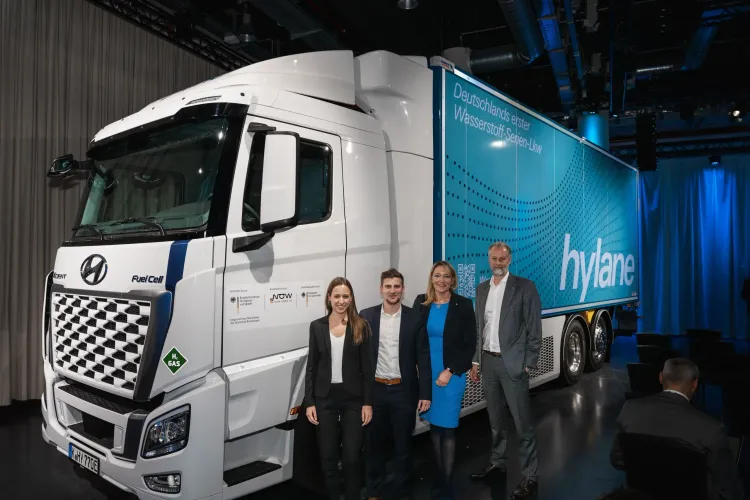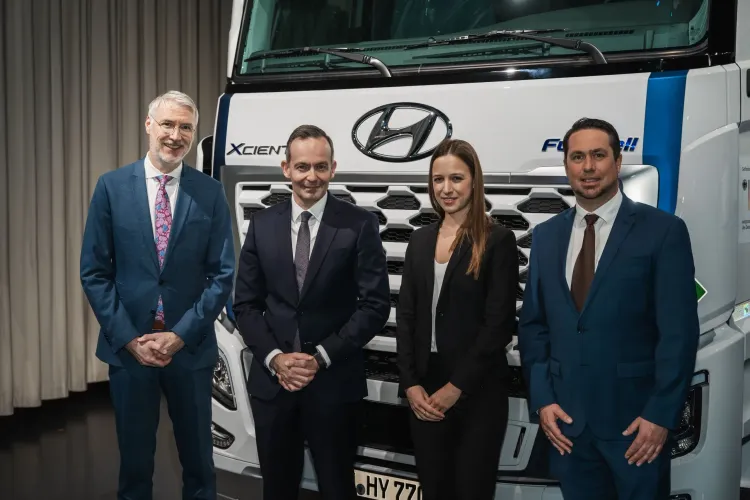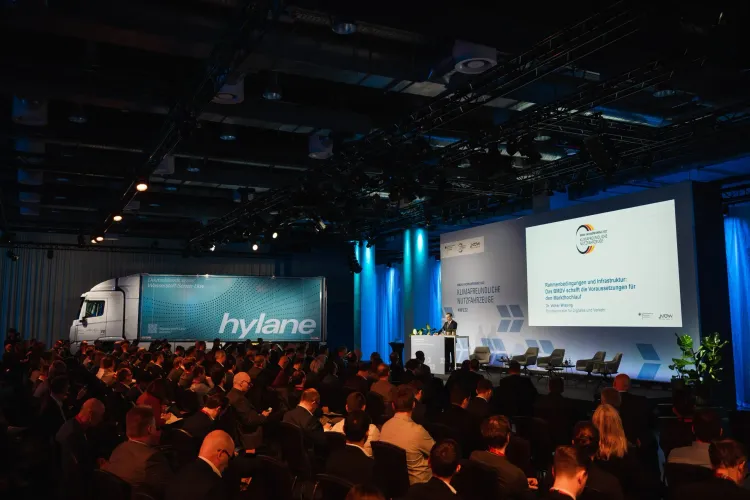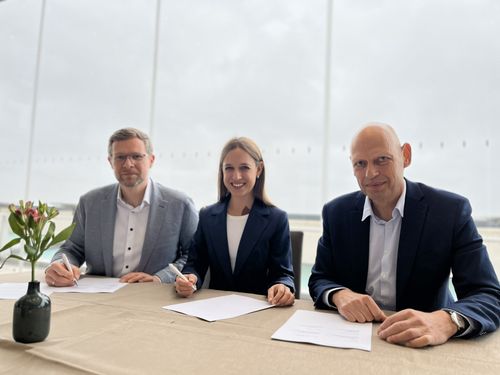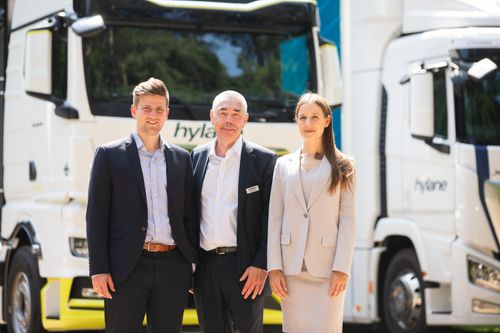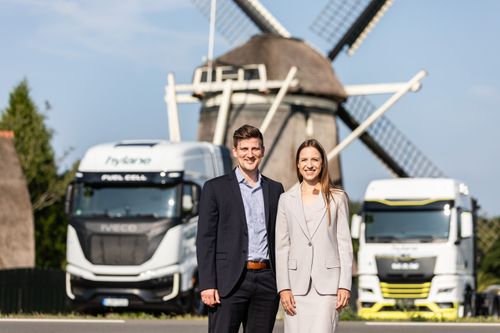To achieve Germany's climate goals, CO2 emissions must be reduced. In the transport sector, limiting emissions to a maximum of 85 million tons of CO2 by 2030 remains a significant challenge. With the approval of the first series-produced hydrogen truck, hylane is taking a pioneering role in decarbonizing heavy road freight transport in Germany.
Sara Schiffer, Managing Director of hylane: "The approval of the first series-produced hydrogen truck in Germany is not only an important milestone for hylane but also a building block for the mobility transition in Germany. To counteract climate change, consistent work on the decarbonization of heavy goods transport is necessary. The use of hydrogen trucks is, in my view, a promising way to achieve this."
Facts about the Truck
The Hyundai vehicle of the type "XCIENT Fuel Cell" has a range of around 400 kilometers. The hydrogen is stored in seven tanks, which can be fully refueled in a span of eight to 20 minutes, depending on the temperature. The vehicle is equipped with a box body including a tail lift.
Beat Hirschi, CEO of HHM: "With this first official approval of a hydrogen truck, Hyundai is pioneering work that is only possible together – with partners and customers like hylane. We all pursue the same goal: to act quickly, consistently, and intelligently to achieve net zero, even in heavy transport. As of today, we are a step closer to this goal."
Additional Information
To meet various customer requirements, the truck bodies are custom configured in collaboration with Schmitz Cargobull. To ensure a reliable hydrogen supply, hylane partners with H2 MOBILITY. Special thanks from the hylane team goes to DEKRA and the Cologne registration office, which closely coordinated all necessary steps – including expert reports and certificates – well in advance to ensure a smooth and timely approval process before the vehicle handover.
The hylane vehicle was funded under the Federal Ministry for Digital and Transport’s KsNI program, which promotes climate-friendly light and heavy commercial vehicles, along with associated refueling and charging infrastructure. The funding guideline is coordinated by NOW GmbH, with applications approved by the Federal Office for Goods Transport.
